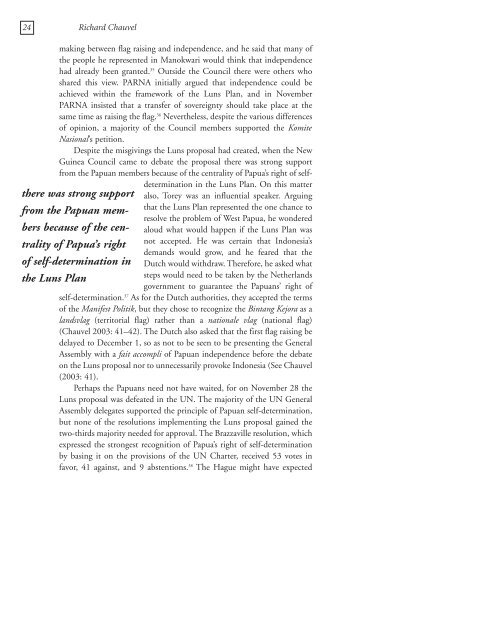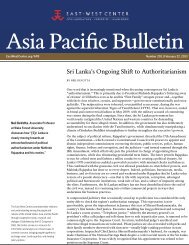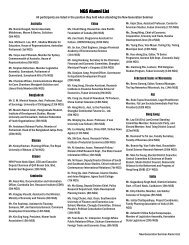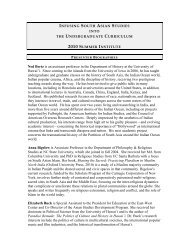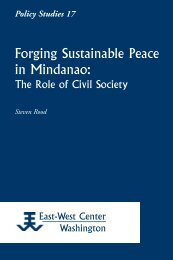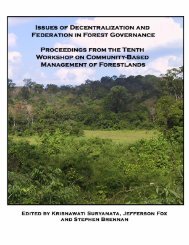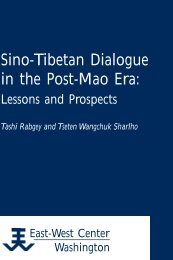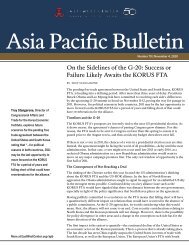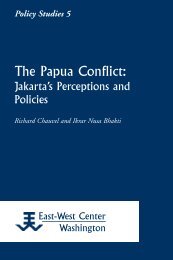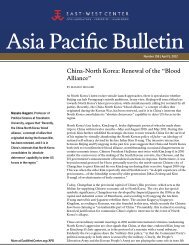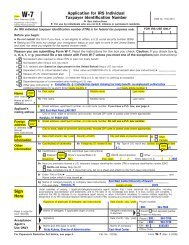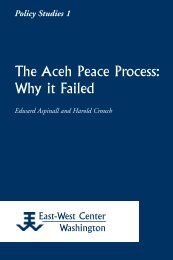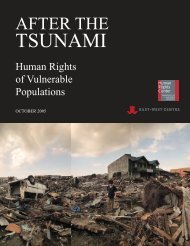Constructing Papuan Nationalism: History, Ethnicity ... - ScholarSpace
Constructing Papuan Nationalism: History, Ethnicity ... - ScholarSpace
Constructing Papuan Nationalism: History, Ethnicity ... - ScholarSpace
- No tags were found...
Create successful ePaper yourself
Turn your PDF publications into a flip-book with our unique Google optimized e-Paper software.
24 Richard Chauvelmaking between flag raising and independence, and he said that many ofthe people he represented in Manokwari would think that independencehad already been granted. 35 Outside the Council there were others whoshared this view. PARNA initially argued that independence could beachieved within the framework of the Luns Plan, and in NovemberPARNA insisted that a transfer of sovereignty should take place at thesame time as raising the flag. 36 Nevertheless, despite the various differencesof opinion, a majority of the Council members supported the KomiteNasional’s petition.Despite the misgivings the Luns proposal had created, when the NewGuinea Council came to debate the proposal there was strong supportfrom the <strong>Papuan</strong> members because of the centrality of Papua’s right of selfdeterminationin the Luns Plan. On this matteralso, Torey was an influential speaker. Arguingthat the Luns Plan represented the one chance toresolve the problem of West Papua, he wonderedaloud what would happen if the Luns Plan wasnot accepted. He was certain that Indonesia’sdemands would grow, and he feared that theDutch would withdraw. Therefore, he asked whatsteps would need to be taken by the Netherlandsgovernment to guarantee the <strong>Papuan</strong>s’ right ofself-determination. 37 As for the Dutch authorities, they accepted the termsof the Manifest Politik, but they chose to recognize the Bintang Kejora as alandsvlag (territorial flag) rather than a nationale vlag (national flag)(Chauvel 2003: 41–42). The Dutch also asked that the first flag raising bedelayed to December 1, so as not to be seen to be presenting the GeneralAssembly with a fait accompli of <strong>Papuan</strong> independence before the debateon the Luns proposal nor to unnecessarily provoke Indonesia (See Chauvel(2003: 41).Perhaps the <strong>Papuan</strong>s need not have waited, for on November 28 theLuns proposal was defeated in the UN. The majority of the UN GeneralAssembly delegates supported the principle of <strong>Papuan</strong> self-determination,but none of the resolutions implementing the Luns proposal gained thetwo-thirds majority needed for approval. The Brazzaville resolution, whichexpressed the strongest recognition of Papua’s right of self-determinationby basing it on the provisions of the UN Charter, received 53 votes infavor, 41 against, and 9 abstentions. 38 The Hague might have expectedthere was strong supportfrom the <strong>Papuan</strong> membersbecause of the centralityof Papua’s rightof self-determination inthe Luns Plan


